Check Out This Amazing Trade-By-Barter Relationship This Bird Has With African Bee Hunters
If you did a quick search on birds, you'd find that they are incredible for several reasons.
While pet birds are not as common as cats and dogs, they are still great companions for humans. Statistics from the American Pet Products Association even show that Americans own up to 16.2 million pet birds.
These fascinating creatures can be your lifelong friends if you let them. They are social, interactive, and relate well to humans. Some humans and birds are known to understand each other's language.
Birds have also served humans well as messengers. Before text messages, people used to attach notes to birds, and they would get delivered.
The famous blue bird used as the Twitter logo is a reminder of how incredible these birds are. That's why when one Redditor read about the honeyguides and their unique ability to help hunters locate bees, they shared it on Reddit for others to see.
OP shared on the TIL subreddit that they had recently found out that the Greater Honeyguide shares a symbiotic relationship with hunters in Africa.
In an article OP shared with their post, Claire Spottiswoode, a zoologist from the University of Cambridge, revealed that the bird leads local hunters to wild beehives located in trees.
However, they don't do this for free. The hunters, in return, leave the wax and the larvae for the birds. Scientists call this a mutualistic interaction.
The article further reveals that this practice is common in the Yao community in Mozambique. Check out the full article below!
The perfect partnership, don't you think?

Zoologist, Claire Spottiswoode, tells us more about the Honeyguide
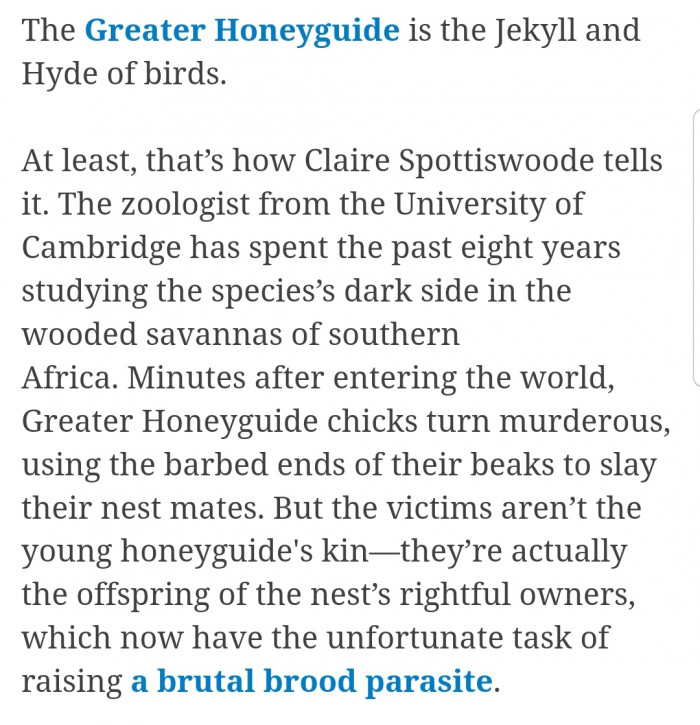
This amazing bird leads local hunters to wild beehives in exchange for wax and larvae
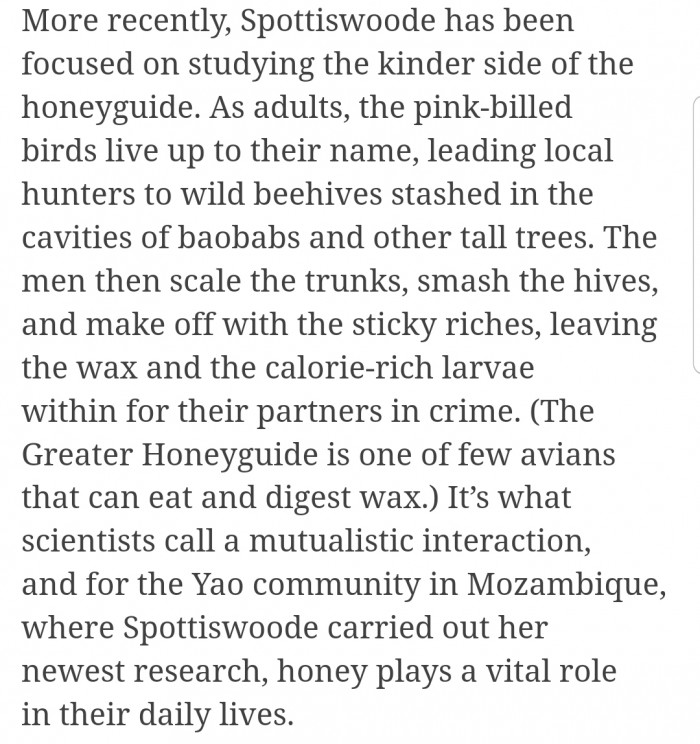
Understanding Mutualism in Nature
The relationship between birds and African bee hunters showcases the fascinating dynamics of mutualism, where both parties benefit. This concept is crucial in ecological psychology, emphasizing the interconnectedness of species and their environments. Research from the Journal of Ecology highlights how mutualistic relationships can promote biodiversity and ecosystem stability.
Such interactions serve as a reminder of the importance of cooperation, not just in nature but also in human societies, where collaborative efforts can lead to enhanced community well-being.
An unlikely business arrangement that has served since the 1500s
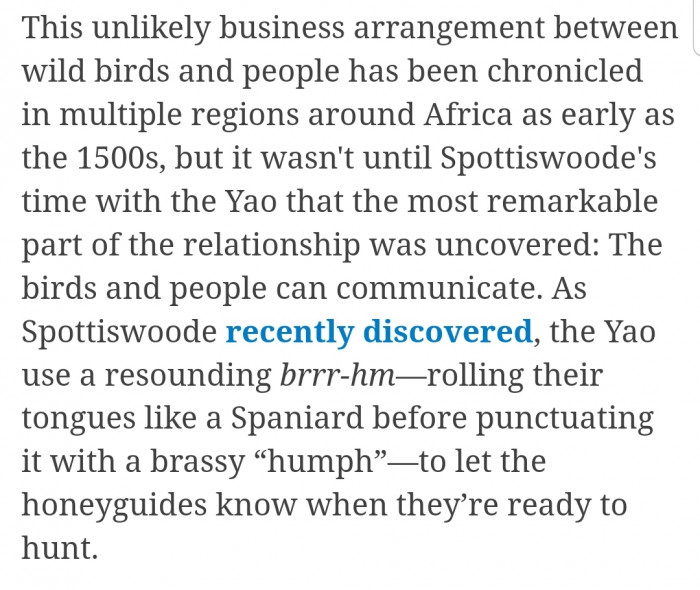
With an incredible 75% success rate, we can say both parties will continue to work together for years to come. In addition, investigations show that different people around the world have different ways of calling out to these honey-tracking birds.
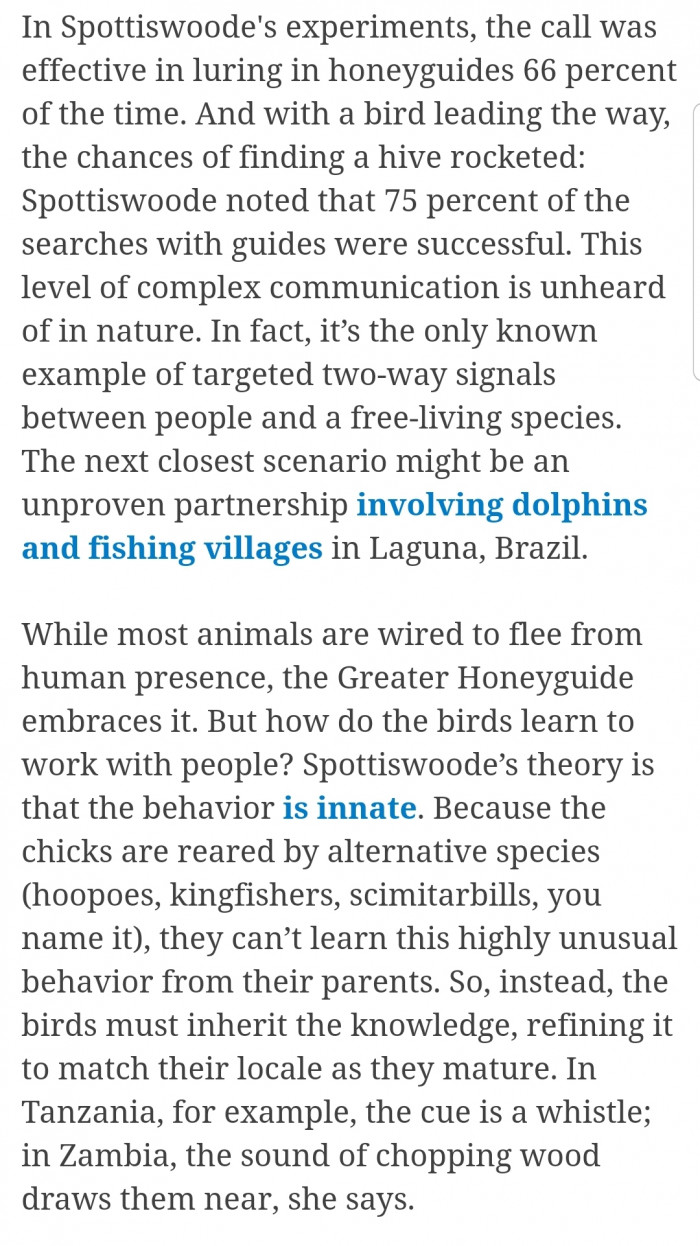
Although the role of this bush bird is shrinking in other parts of the world, the Yao of Mozambique have kept this alliance strong.
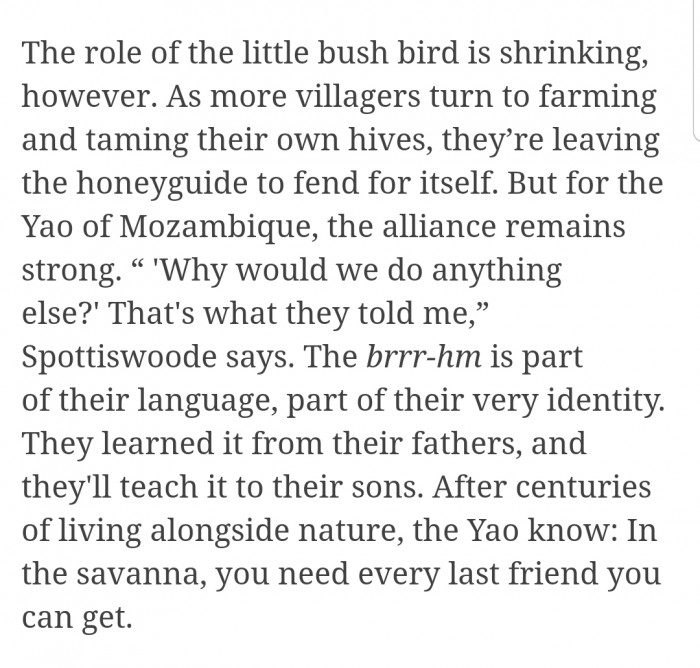
Moreover, the psychological implications of such symbiotic relationships can be profound. Dr. Michele Gelfand, a cultural psychologist, states, "Observing cooperation in nature can inspire humans to adopt similar collaborative behaviors." This phenomenon, known as 'biomimicry,' encourages individuals to look to nature for solutions to social and environmental issues, fostering a sense of responsibility towards the planet. For more insights, visit her professional website at michelegelfand.com.
Here's how the Reddit community reacted to this intriguing finding:
Disney movies were right after all

Good question
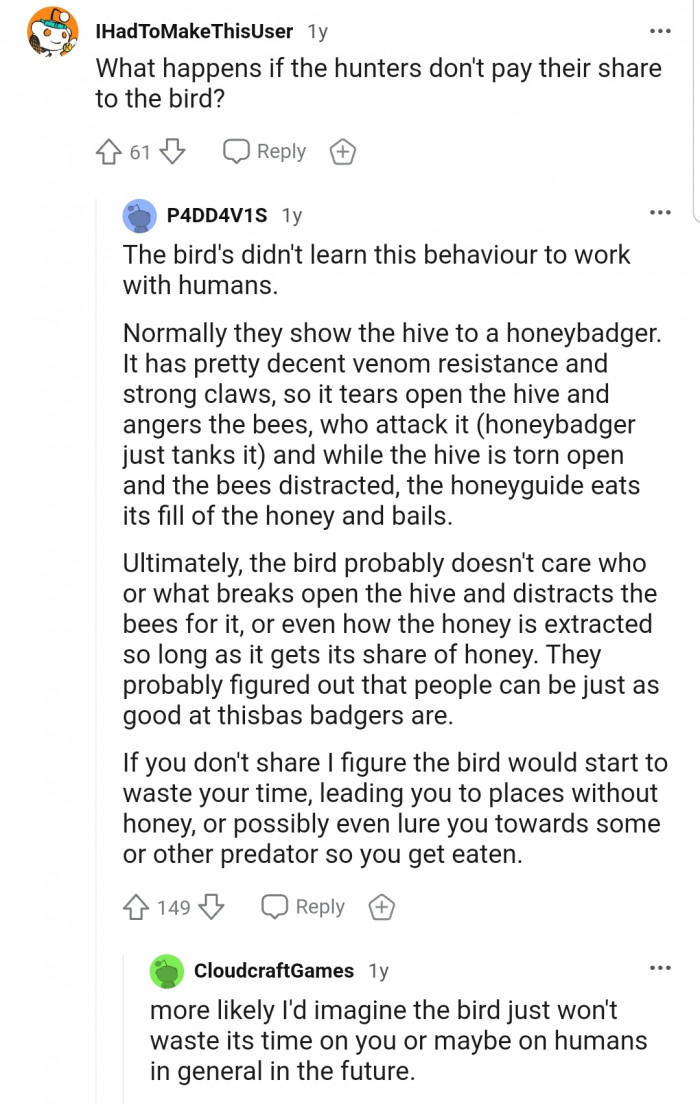
Seems humans aren't the only ones benefiting from this partnership
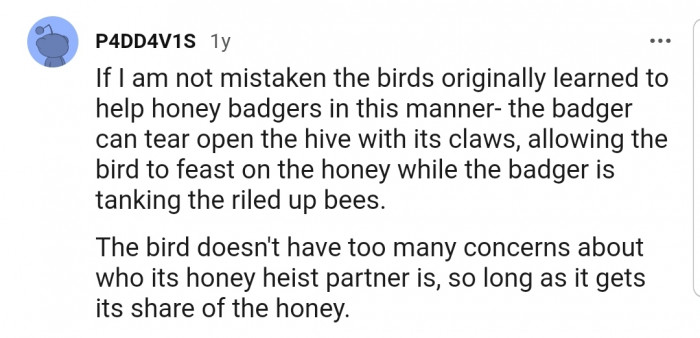
The Importance of Collaborative Relationships
Collaboration is a powerful psychological principle that extends beyond ecological interactions. The benefits of teamwork and mutual support are well-documented in psychology, with experts like James Clear, author and productivity expert, stating, "Collaboration is the key to unlocking potential that we cannot achieve alone." Environments that promote collaboration can significantly enhance individual and collective outcomes, as noted by Daniel Pink, a renowned author on business and human behavior, who emphasizes that "the right conditions can lead to extraordinary results." Thus, fostering cooperative relationships, whether in nature or human interactions, can lead to more thriving communities.
Sounds like a good deal

Everyone needs to check out this game
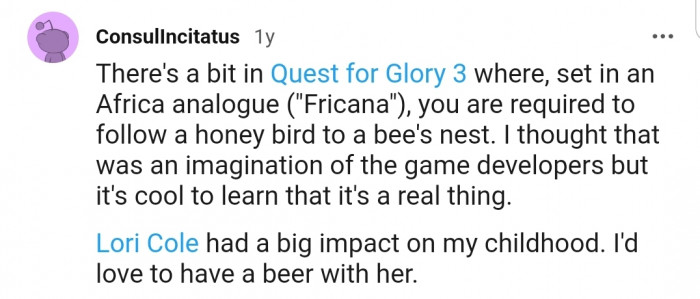
"Crows have been observed working with wolves in a similar manner"
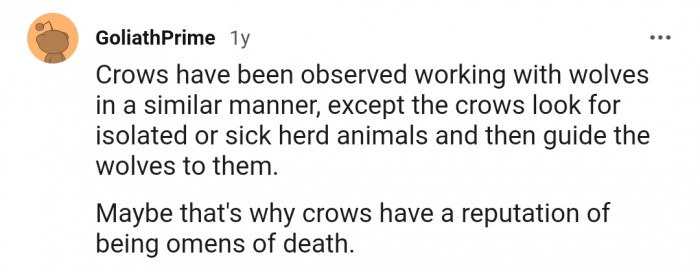
Furthermore, understanding the dynamics of reciprocity can enhance our relationships with others. Reciprocity is a foundational principle in social psychology, where mutual exchanges create trust and strengthen bonds. Studies indicate that when individuals feel supported, they are more likely to reciprocate, creating a positive feedback loop that benefits all parties involved.
"Hunters do not usually share the honey with the birds!... They don't share in order to keep the birds hungry so they find more" honey
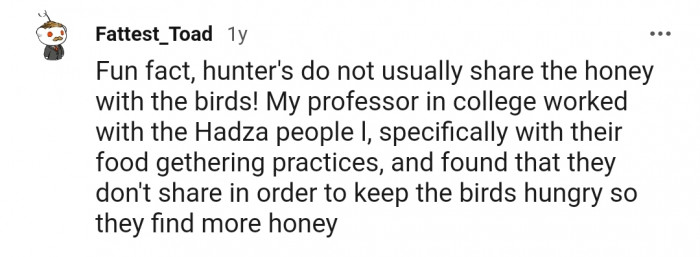
"In case anyone is curious, this is a natural evolutionary trait for them"
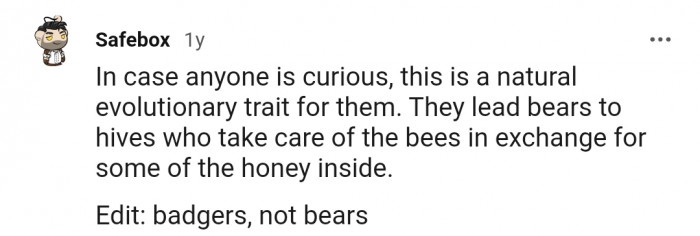
Humans are no strangers to the exchange relationship, as we receive goods and services in exchange for money daily. However, it's pretty fascinating to see that behavior replicated between two different species.
Most commenters expressed their admiration for the honeyguide. One in particular referenced Disney movies, stating that they weren't so far off after all.
What do you think about the Greater Honeyguide’s relationship with hunters? Let us know in the comments section!
Psychological Analysis
This unique relationship between birds and bee hunters reflects a fundamental psychological principle: the value of cooperation. When individuals work together towards a common goal, both parties can experience significant benefits. Understanding these dynamics can encourage us to seek out collaborative opportunities in our own lives.
Analysis generated by AI
Analysis & Alternative Approaches
In essence, the relationship between birds and bee hunters highlights the potential for mutual benefit through collaboration. By recognizing and embracing the principles of cooperation and reciprocity, we can cultivate stronger communities and a healthier planet. The psychological insights gained from observing these natural partnerships can inspire us to take more proactive roles in our social and environmental responsibilities.



